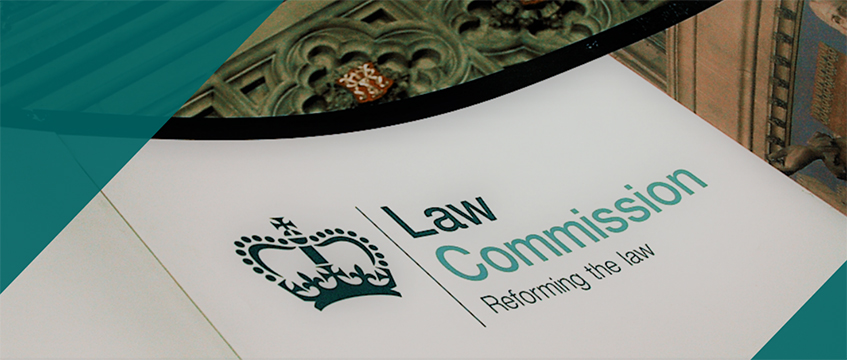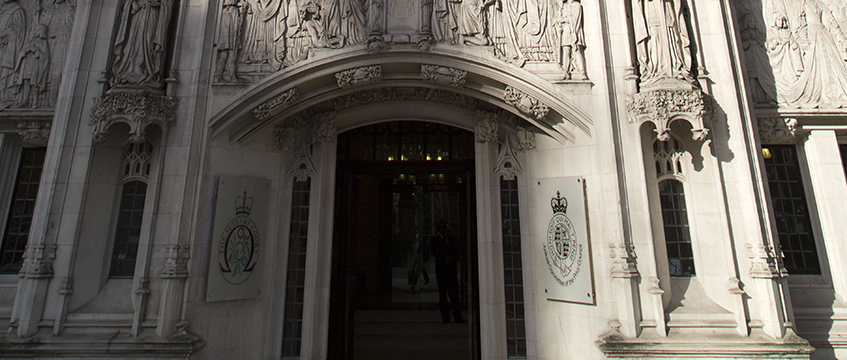Commercial lease – Break clause – Rent – Break clause entitling claimant to terminate lease subject to conditions – Whether lease entitling claimant to partial repayment of rent in respect of period after specified termination date – Claim allowed
The claimant was the tenant and the defendant was the landlord of four floors of an office building under a lease for a term of years starting in January 2006 and ending in February 2018. Although the premises were intended to be occupied by the tenant for the purposes of a business, the lease was contracted out of the security of tenure provisions in section 24 to 28 of the Landlord and Tenant Act 1954, pursuant to section 38A(3)(a) of that Act, so that the term of years would expire in February 2018 and could not continue thereafter under the 1954 Act. Under the lease, the claimant was obliged to pay a rack rent and a car park licence fee by equal quarterly instalments in advance, plus insurance costs and a service charge.
The lease contained a break clause entitling the claimant to determine the lease on a specified date in January 2012 or 2016. In July 2011, the claimant served a notice on the defendant pursuant to the break clause to determine the lease in January 2012. The claimant fulfilled the conditions imposed by the break clause, namely that, at the break date, there were no arrears of basic rent or VAT on that rent and that a payment was made to the defendant, on or prior to that date, in the sum of £919,800 plus VAT.
An issue later arose as to whether the claimant was entitled to be repaid part of the quarter’s rent paid in advance in December 2011, in so far as it related to the period from January 2012 to March 2012, since the specified date for termination of the lease was in the middle of a quarter. The claimant argued that it was entitled to be repaid: (i) pursuant to an express term in the lease; (ii) pursuant to an implied term; and (3) in restitution because there had been a total failure of consideration.
Similar questions arose in relation to payments made in relation to the rent for car parking, insurance and the service charge. The defendants contended, inter alia, that the terms of the settlement agreement prevented the claimant asserting a right to be repaid the sums claimed, even if there had previously been such a right.
Held: The claim was allowed.
(1) On the true interpretation of the lease, in a case where it could not be said in December 2011 whether the term would end in January 2012, a full quarter’s rent was payable on that date. The lease operated so as to require the tenant to pay a full quarter’s rent in December 2011, even in a case where it later emerged that the term ended in January 2012. Moreover, the lease contained no express provision that conferred on the tenant a right to recover part of the quarter’s rent, nor did it impose on the landlord an obligation to pay to the tenant a part of the quarter’s rent. Accordingly, the lease did not expressly provide for the claimant to receive a part of the quarter’s rent paid in respect of the rent due in December 2011: Capital & City Holdings v Dean Warburg [1989] 1 EGLR 90, PCE Investors Ltd v Cancer Research UK [2012] EWHC 884 (Ch); [2012] PLSCS 84 and Canonical UK Ltd v TST Millbank LLC [2012] EWHC 3710 (Ch); [2013] PLSCS 37 considered.
(2) However, a term was to be implied into the lease entitling the claimant to recover from the defendant a part of the quarter’s rent in relation to the period after the January 2012 break date. Such an implied term would spell out in express words what the instrument, read against the relevant background, would reasonably be understood to mean. It was a necessary, but not a sufficient condition for the implication of any term that the suggested term should be reasonable. The court had to resist the temptation to produce a result which was fair and reasonable and would be slower to imply a term where the contract was lengthy and contained detailed provisions which had apparently been fully considered and expressed. In this case, the suggested implied term was necessary to give business efficacy to the lease. It was obviously what the parties meant and it was made sufficiently obvious by the use of the words “proportionately for any part of year” and the fact that the quarterly payments were “instalments”, even though they did not spell out a specific obligation on the lessor’s part to repay part of the quarter’s instalment in relation to the period after the break date. Further, the suggested implied term could be clearly and easily expressed and it did not contradict any express term of the lease: Attorney General of Belize v Belize Telecom Ltd [2007] 1 WLR 1988 applied; Liverpool City Council v Irwin [1976] 1 EGLR 53; (1976) 238 EG 879 and Philips Electronique Grand Public SA v British Sky Broadcasting Ltd [1995] EMLR 472 considered.
(3) Had it been necessary to decide the point, the court did not consider it possible to say that the consideration for the quarter’s rent due on the last quarter day before the break date had totally failed: Quirkco Investments Ltd v Aspray Transport Ltd [2011] EWHC 3060 (Ch); [2011] PLSCS 284 and PCE Investors Ltd v Cancer Research UK [2012] EWHC 884 (Ch); [2012] PLSCS 84 applied.
(4) The claimant was also entitled to repayment of sums in respect of the car park licence fee and insurance. As regards the service charge claim, followingthe break date, there were procedures for the determination of the amount of the service charge which had not been completed and could still be operated, notwithstanding the termination of the lease. In accordance with those procedures, the claimant would be entitled to two credits, one for the 2011 service charge year and one for the 2012 service charge year: Torminster Properties Ltd v Green [1983] 2 EGLR 30; (1983) 267 EG 256 and Brown’s Operating System Services Ltd v Southwark Roman Catholic Diocesan Corporation [2007] EWCA Civ 164; [2007] PLSCS 44 considered.
(5) The clear wording of the settlement agreement did not involve a settlement by the claimant of any claim which the claimant might have against the defendants. There was nothing in the background circumstances which would lead to any different interpretation of the clear language used.
Guy Fetherstonehaugh QC (instructed by S J Berwin LLP) appeared for the claimant; Kirk Reynolds QC (instructed by Allen & Overy LLP) appeared for the defendants.
Eileen O’Grady, barrister










